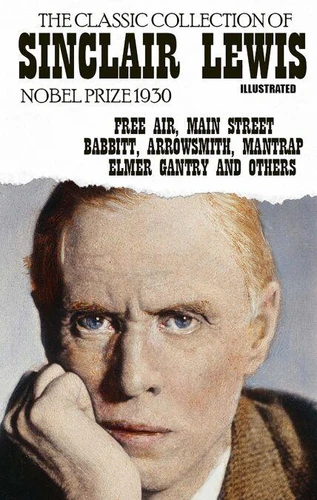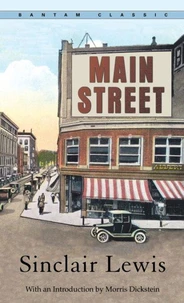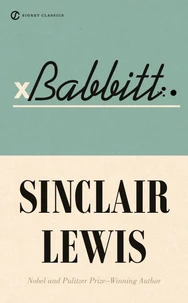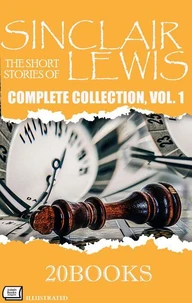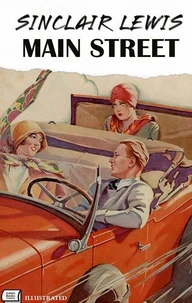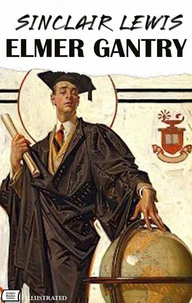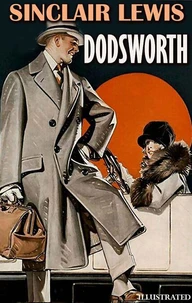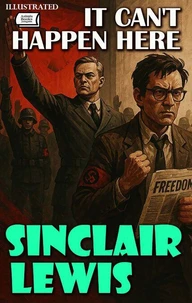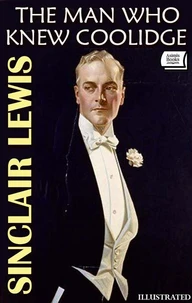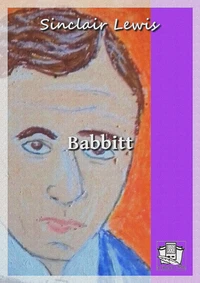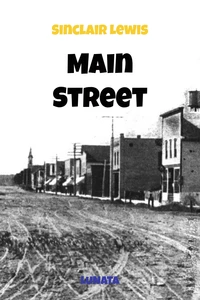Prix Nobel de Littérature
The classic collection of Sinclair Lewis. Nobel Prize 1930. Illustrated. Free Air, Main Street, Babbitt, Arrowsmith, Mantrap, Elmer Gantry and others
Par :Formats :
Disponible dans votre compte client Decitre ou Furet du Nord dès validation de votre commande. Le format ePub est :
- Compatible avec une lecture sur My Vivlio (smartphone, tablette, ordinateur)
- Compatible avec une lecture sur liseuses Vivlio
- Pour les liseuses autres que Vivlio, vous devez utiliser le logiciel Adobe Digital Edition. Non compatible avec la lecture sur les liseuses Kindle, Remarkable et Sony
 , qui est-ce ?
, qui est-ce ?Notre partenaire de plateforme de lecture numérique où vous retrouverez l'ensemble de vos ebooks gratuitement
Pour en savoir plus sur nos ebooks, consultez notre aide en ligne ici
- Nombre de pages4762
- FormatePub
- ISBN978-617-7943-88-3
- EAN9786177943883
- Date de parution15/03/2023
- Protection num.pas de protection
- Taille4 Mo
- Infos supplémentairesepub
- ÉditeurAndrii Ponomarenko
Résumé
Harry Sinclair Lewis (February 7, 1885 - January 10, 1951) was an American writer and playwright. In 1930, he became the first writer from the United States (and the first from the Americas) to receive the Nobel Prize in Literature, which was awarded "for his vigorous and graphic art of description and his ability to create, with wit and humor, new types of characters." He is best known for his novels Main Street (1920), Babbitt (1922), Arrowsmith (1925), Elmer Gantry (1927).
In 1930 Lewis won the Nobel Prize in Literature, the first writer from the United States to receive the award, after he had been nominated by Henrik Schück, member of the Swedish Academy.
In the academy's presentation speech, special attention was paid to Babbitt. In his Nobel Lecture, Lewis praised Theodore Dreiser, Willa Cather, Ernest Hemingway, and other contemporaries, but also lamented that "in America most of us - not readers alone, but even writers - are still afraid of any literature which is not a glorification of everything American, a glorification of our faults as well as our virtues, " and that America is "the most contradictory, the most depressing, the most stirring, of any land in the world today." He also offered a profound criticism of the American literary establishment: "Our American professors like their literature clear and cold and pure and very dead." CONTENTS: Our Mr.
Wrenn (1914) The Trail of the Hawk (1915) The Job (1917) The Innocents (1917) Free Air (1919) Main Street (1920) Babbitt (1922) Arrowsmith (1925) Mantrap (1926) Elmer Gantry (1927)
In the academy's presentation speech, special attention was paid to Babbitt. In his Nobel Lecture, Lewis praised Theodore Dreiser, Willa Cather, Ernest Hemingway, and other contemporaries, but also lamented that "in America most of us - not readers alone, but even writers - are still afraid of any literature which is not a glorification of everything American, a glorification of our faults as well as our virtues, " and that America is "the most contradictory, the most depressing, the most stirring, of any land in the world today." He also offered a profound criticism of the American literary establishment: "Our American professors like their literature clear and cold and pure and very dead." CONTENTS: Our Mr.
Wrenn (1914) The Trail of the Hawk (1915) The Job (1917) The Innocents (1917) Free Air (1919) Main Street (1920) Babbitt (1922) Arrowsmith (1925) Mantrap (1926) Elmer Gantry (1927)
Harry Sinclair Lewis (February 7, 1885 - January 10, 1951) was an American writer and playwright. In 1930, he became the first writer from the United States (and the first from the Americas) to receive the Nobel Prize in Literature, which was awarded "for his vigorous and graphic art of description and his ability to create, with wit and humor, new types of characters." He is best known for his novels Main Street (1920), Babbitt (1922), Arrowsmith (1925), Elmer Gantry (1927).
In 1930 Lewis won the Nobel Prize in Literature, the first writer from the United States to receive the award, after he had been nominated by Henrik Schück, member of the Swedish Academy.
In the academy's presentation speech, special attention was paid to Babbitt. In his Nobel Lecture, Lewis praised Theodore Dreiser, Willa Cather, Ernest Hemingway, and other contemporaries, but also lamented that "in America most of us - not readers alone, but even writers - are still afraid of any literature which is not a glorification of everything American, a glorification of our faults as well as our virtues, " and that America is "the most contradictory, the most depressing, the most stirring, of any land in the world today." He also offered a profound criticism of the American literary establishment: "Our American professors like their literature clear and cold and pure and very dead." CONTENTS: Our Mr.
Wrenn (1914) The Trail of the Hawk (1915) The Job (1917) The Innocents (1917) Free Air (1919) Main Street (1920) Babbitt (1922) Arrowsmith (1925) Mantrap (1926) Elmer Gantry (1927)
In the academy's presentation speech, special attention was paid to Babbitt. In his Nobel Lecture, Lewis praised Theodore Dreiser, Willa Cather, Ernest Hemingway, and other contemporaries, but also lamented that "in America most of us - not readers alone, but even writers - are still afraid of any literature which is not a glorification of everything American, a glorification of our faults as well as our virtues, " and that America is "the most contradictory, the most depressing, the most stirring, of any land in the world today." He also offered a profound criticism of the American literary establishment: "Our American professors like their literature clear and cold and pure and very dead." CONTENTS: Our Mr.
Wrenn (1914) The Trail of the Hawk (1915) The Job (1917) The Innocents (1917) Free Air (1919) Main Street (1920) Babbitt (1922) Arrowsmith (1925) Mantrap (1926) Elmer Gantry (1927)

